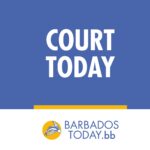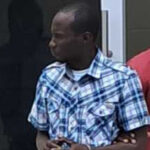The recent results of the Barbados Secondary Schools Entrance Examinations (BSSEE) – the 11-Plus Exam – have once again highlighted the pressing need for a fundamental reassessment of our education system. While the Ministry of Education scrambles to highlight positives, the underlying issues cannot be ignored.
The dominance of private schools among top performers and the concerning number of students scoring zero in mathematics point to a systemic failure – not of our students, but of the examination itself and the educational approach it represents.
But is abolishing the exam entirely the answer?
We accept that the BSSEE, in its current form, is perpetuating educational inequality. It’s a high-stakes, single-sitting exam that fails to capture the true potential and diverse abilities of our young learners. The pressure it places on students, parents, and teachers is immense, often leading to a narrow focus on exam preparation at the expense of holistic education.
It smacks of the elitism and exclusivity of its colonial roots. But in a nation that has kept the fundamental form and structure of public education since the Mitchinson commission of 1879 – retaining an academic-based Barbados Scholarship after 145 years but ending and only partially restoring free university education, the government’s current reform ideas ignore the enduring grip of historic reality. There is room for both excellence and equity.
We remain baffled at successive administrations’ steadfast refusal to explore alternatives that offer a more comprehensive and equitable approach to assessment. The Caribbean Primary Exit Assessment (CPEA), implemented successfully in most Organisation of Eastern Caribbean States (OECS) countries, presents a compelling model. The CPEA’s balanced approach, combining continuous assessment with a final exam spread over two days, provides a more accurate picture of student abilities and reduces the stress associated with a single make-or-break test.
It is hardly surprising that the promised abolition of the BSSEE has once again been shelved. But the ministry’s belated announcement of plans to introduce learning standards ahead of education transformation is a step in the right direction – albeit one that should have been taken long ago. Somebody on Constitution Road finally noticed the horse was lagging behind the cart.
We need a revolution in our education system, but it doesn’t have to be a disruptive one that drives more parents towards private schooling. Instead, we should focus on several important efforts. After the ministry implements the promised comprehensive learning standards across all primary schools, it should consider replacing the BSSEE in favour of a CPEA-style assessment system. This demands investing in teacher training to support new assessment methods and personalised learning approaches.
The authorities should increase resources for early intervention and support for students struggling with core subjects. A properly working Open Educational Management Information System (OpenEMIS) is essential for diagnostic and resource allocation purposes. The Luddite disdain by teachers is failing our students just as much as staying away from the classroom.
We would also suggest that there be a thorough investigation of the dominance of private schools, many of which are keen to boost their brands with top five performances. But this is not the whole story.
Finally, league tables to rank the performance of schools in the public system will make our taxpayer-funded schools more accountable to the taxpaying parents and guardians. Education officials demurring journalists’ calls for a deep dive into the results data suggests there is more in the proverbial mortar than the pestle.
The goal should be to create an education system that truly serves all our students, regardless of their background or the type of school they attend. But it should absolutely guarantee that tax dollars nurture our brightest and best, who we argue are greater in number than the exam marks currently suggest. We must move away from a system that pits children against each other, towards one that nurtures and develops each child’s unique potential in diverse areas.
Testing Maths and English only helps test-taker coaches, not true educators. Our elementary schools have long taught social studies, general science, health and family life, and even languages and civics in limited form. The new national standard should include benchmarks for learning in these subjects and more. Robotics and coding classes that go untested and untethered from learning rubrics are but gimmicks.
The continued deferring on ending the BSSEE is a testament to our resistance to change, but the costs of this inertia are too high. Better testing not the absence of testing and the herding of children into so-called junior and senior schools is not good enough.
Barbados used to lead the way in educational reform in the Caribbean, sending its best educators to the farthest outposts of the British West Indies. In a new era, it should collaborate, learn, adapt and refine the best examples of an Eastern Caribbean that has not only caught up but has shot past in the development of a relevant education system.
We can no longer rest on the laurels of history and look with disdain upon what works elsewhere in the island chain. That way madness lies.
The post 11-Plus: Have we been looking at it the wrong way? appeared first on Barbados Today.


